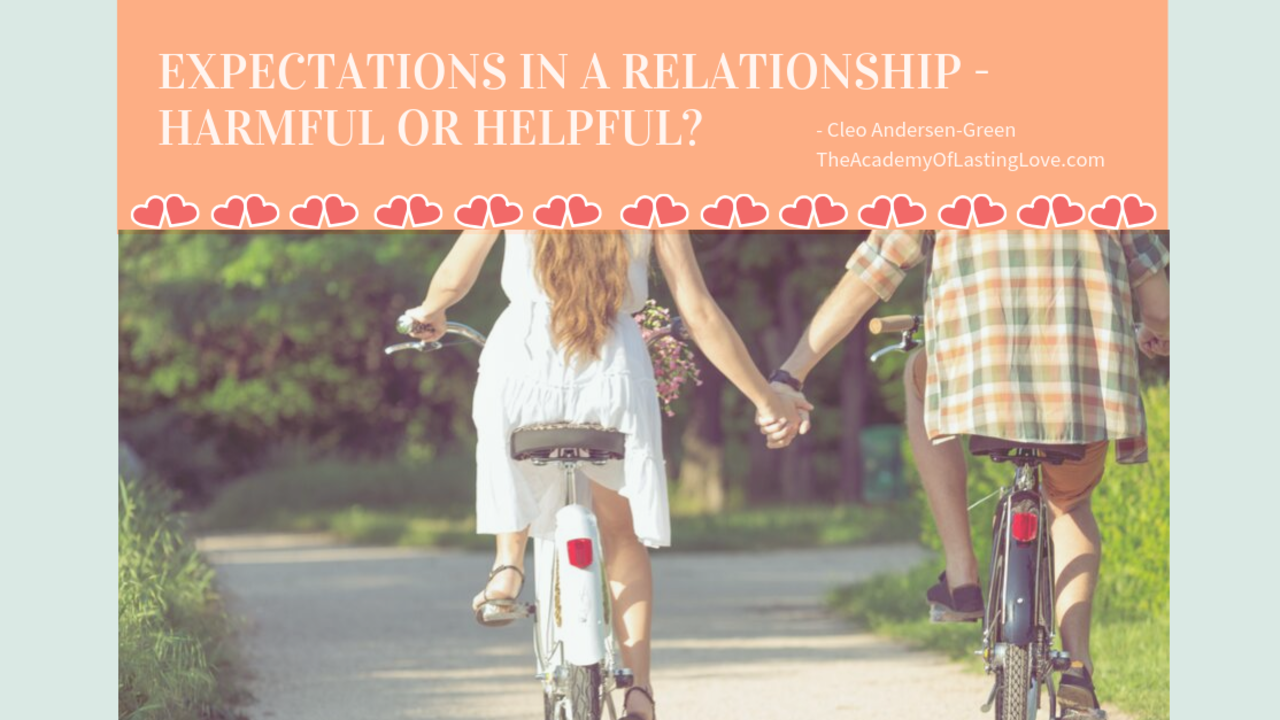Expectations in a Relationship - Harmful or Helpful?

We’ve heard that high expectations lead to disappointment but we’ve also heard you get what you wish for in life, so what should you be hoping for out of your relationship.
Have you ever been told that if you lower your expectations you’re more likely to be pleasantly surprised instead of disappointed? And have you ever applied this to your relationship? Or perhaps you’ve talked a friend through a bad date, that actually wasn’t that bad, and thought that while your bestie deserves a great partner, she might need to lower her expectations in order to find and keep one?
Some therapists warn against having high expectations because it leads to resentment. But is it as clear-cut as that?
The answer is a resounding no.
In my past work with clients, those who’ve felt they deserve little, and had low expectations of what a good relationship should be like, generally experienced just that- a partner who’s treated them poorly and a relationship that wasn’t healthy or fulfilling.
But I’ve also experienced the other end of the spectrum with women that have the expectation they should be swept off their feet, their partner should be a perfect knight in shining armor, and it’ll all be daisies for the rest of their days.
They are often disappointed when reality sets in - their knight will forget to get them a present on their 6 month anniversary, or they’ll have their first big fight. They get resentful that their expectations aren’t being met. They think they should leave because if he was their true soulmate, it wouldn’t be difficult, they wouldn’t have arguments, and they wouldn’t have to compromise their own desires.
The key to balancing expectations is to shoot for having a relationship that’s ‘good enough’.
Now I don’t mean settling for something that’s less than great. In fact, I say “go for it”- have those high expectations, believe that you deserve to be treated with love, respect, kindness, affection, and loyalty. You shouldn’t accept neglect or abuse.
But the difference between creating a relationship that’s ‘good enough’ versus one that’s ‘perfect’ is that both parties understand it’s not always going to be smooth sailing. There will be disagreements. Even the most happy and healthy couples encounter conflict, which is beneficial as it leads to growth and increased understanding.
Additionally, those who believe in ‘perfect’ relationships miss opportunities for showing their appreciation. When you expect perfection, you aren’t motivated to be grateful (and show that gratitude) to your partner when they do something kind because you see it as a box to tick, and not a gift being given. Eventually they won’t try and meet your expectations because why should they? They’re getting little back in return.
Couples who have relationships that are ‘good enough’ have a mutual sense of responsibility to the relationship. They want to make it work. They give it their all, and show up fully by communicating mindfully and handling conflict constructively. They maintain their friendship and a satisfying sex life. They understand that both parties will have to compromise their own self-interests for the benefit of the relationship. Importantly, they know that their partner will mistakenly hurt them at times, but as long as the pain can be properly explored and forgiven, it’ll only be a small bump in the road and not the end of one.
If your expectation is that you’ll never have to compromise, and that you’ll never have to experience hard work to make a relationship fulfilling, you’ll be sorely disappointed. But if your expectations are that you both honor each other goals, even if they’re dissimilar; and that you both have shared values, beliefs, morals, and rituals, then stay with that. You deserve to have those expectations met. A successful relationship is certainly achievable if both of you are willing to do the work!

